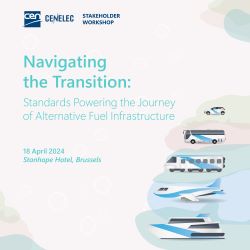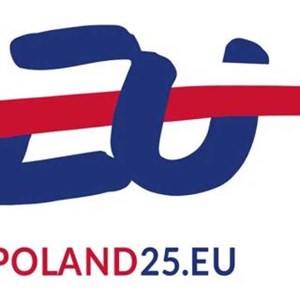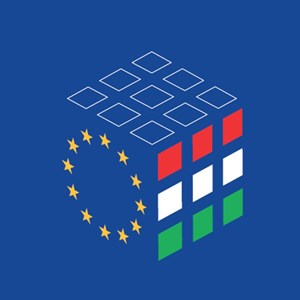Finding ways to use alternative fuels like electricity, biofuels, and hydrogen in transportation comes with its own set of hurdles. Imagine setting up charging stations for electric cars across Europe, ensuring airplanes use sustainable fuels, or making ships more environmentally friendly. Luckily, standards can help, as highlighted by a workshop organized by CEN and CENELEC on 18 April.
In recent years, the European Commission has been hard at work, passing laws as part of the Green Deal to make transportation more sustainable all across Europe. In particular, one crucial trio of regulations focuses on the need to invest heavily in alternative fuels:
- Alternative Fuels Infrastructure Regulation (2023/1804): this Regulation pushes for the widespread availability of charging and refuelling stations for alternative fuels, catering to different types of vehicles all over Europe;
- ReFuelEU Aviation (2023/2405): with this text, the aim is to cut down on carbon emissions from air travel by increasing the use of sustainable aviation fuels (SAF);
- FuelEU Maritime (2023/1805): finally, here the focus is on reducing carbon emissions from ships, steering the maritime sector towards a greener future.
European standards play a vital role in making these regulations work. They act as a guide, helping countries transition smoothly to using alternative fuels in various modes of transportation.
To explore these opportunities and challenges in depth, on 18 April 2024, CEN (the European Committee for Standardization) and CENELEC (the European Committee for Electrotechnical Standardization) held the high-level workshop ‘Navigating the Transition: Standards Powering the Journey of Alternative Fuel Infrastructure’ in Brussels.
The full-day event was opened by Riccardo Lama, CENELEC President-Elect. Maja Bakran, Deputy Director-General of DG MOVE (EC), then delivered the keynote speech on ‘The Path to Sustainable Transport: The EU Vision of Alternative Fuels infrastructure (AFI)’. Ms Bakran explained the vision supporting the legislative work connected to the AFIR, ReFuelEU Aviation and FuelEU Maritime.
A high-level panel debate ensued, featuring Yann Fromont, Deputy President of T&D Europe and the Chair of the CEN and CENELEC Industry Advisory Forum; Axel Volkery, Acting Head of Unit Sustainable & Intelligent Transport Systems in DG MOVE at the European Commission; Lucie Petersen, Senior Policy Expert for Road Transport, Energy and Fuels at Union Internationale des Transports Publics (UITP) and Luka De Bruyckere, Senior Programme Manager of ECOS. The panellists discussed the rationale behind the new AFI Regulation, the importance of integrating alternative fuels into a broader ecosystem vision, and the key challenges of the legislation.
The event then split into breakout sessions focusing on specific modes of transport. These sessions brought together industry leaders, civil society representatives, standardization experts, and policymakers to discuss various aspects of the transition to alternative fuels.
The first session was centred on the standardization opportunities to develop an interoperable charging and refuelling infrastructure for European road vehicles. Participants explored market perspectives, the impact of legislation, and the transition between the previous Directive and the new Regulation.
The second session tackled the transition of the European aviation industry. Speakers explained the increased pressure for a fuel-shift in the aviation sector and how standards come into the picture to help this transition.
In the afternoon, attention turned to sustainable maritime and inland fuel adoption, with discussions on the technical and economic challenges posed by Regulation (EU) 2023/1805 and the role of standardization in overcoming them.
The final session focused on railways. In it, panellists discussed the role of technologies like fuel cells and onboard batteries in transforming non-electrified rail networks, alongside the importance of standardization in providing viable solutions.
The event concluded with representatives from each session reporting on the main outcomes and takeaways. Marc-Antoine Carreira da Cruz, Project Manager Mobility at CEN and CENELEC, highlighted the crucial role of standardization in aligning with recent legislative acts and emphasized the need for an ecosystem perspective to foster cooperation between the different stakeholders.
CEN and CENELEC are strongly committed to the twin green and digital transition and the move towards climate neutrality in Europe, as outlined in their joint Strategy 2030. This workshop was just one of many initiatives supporting these goals. To know more, you can visit CEN and CENELEC’s website.

Giovanni COLLOT
gcollot@cencenelec.eu



